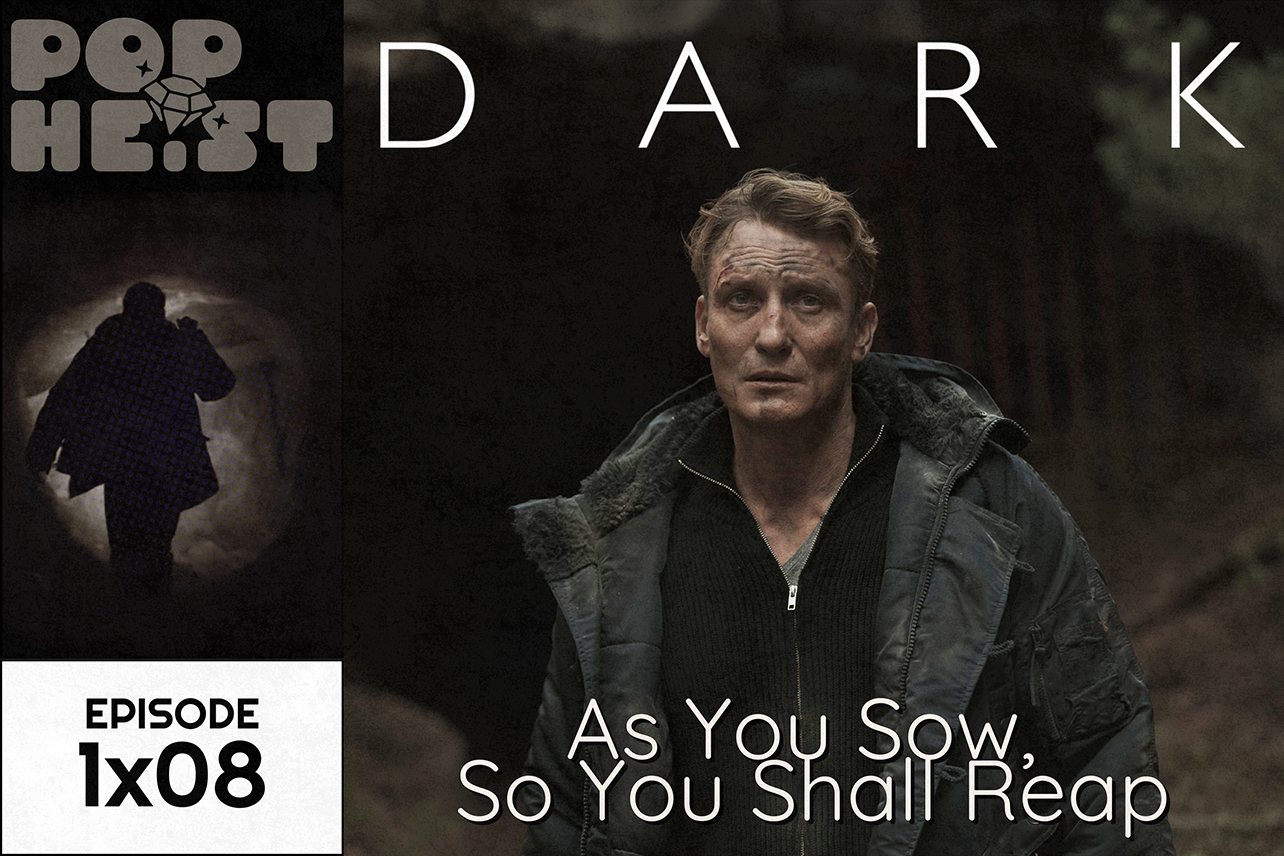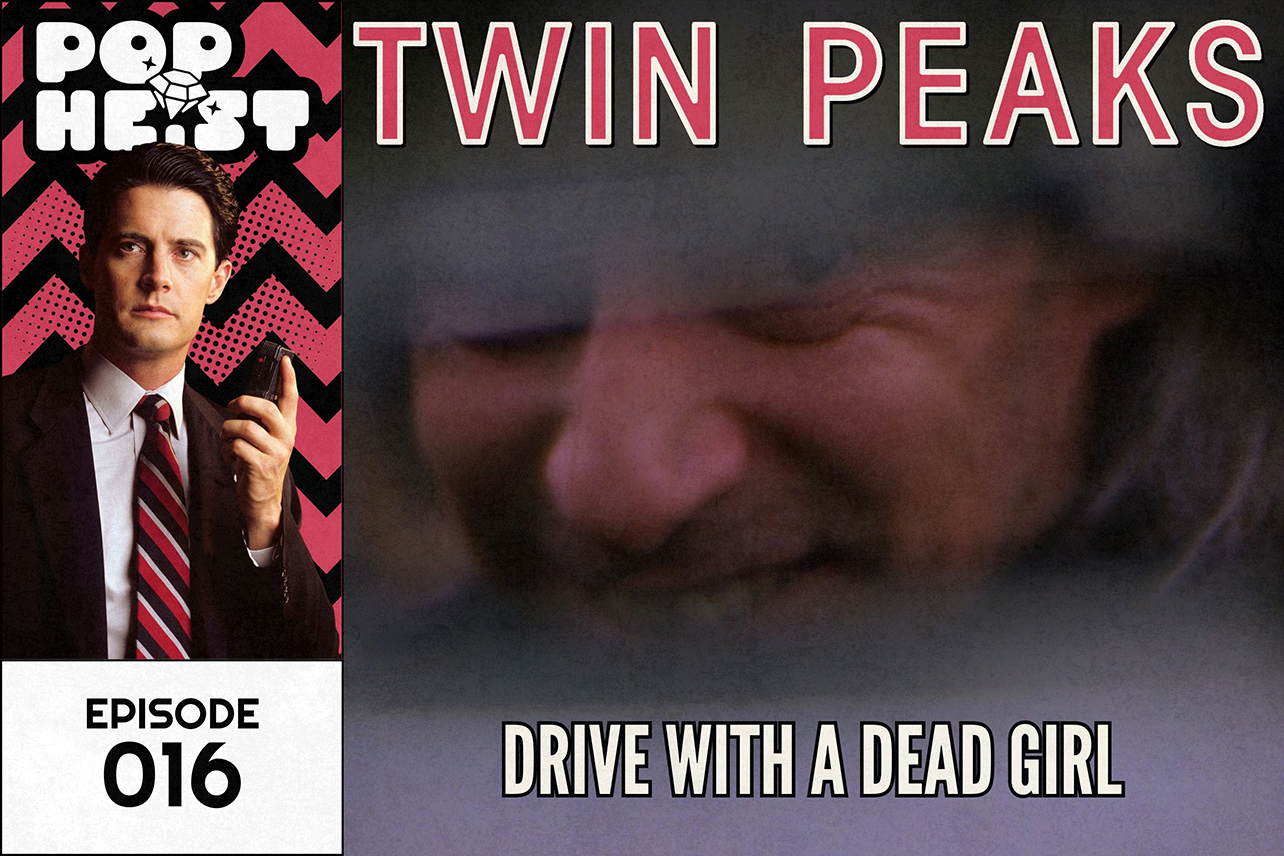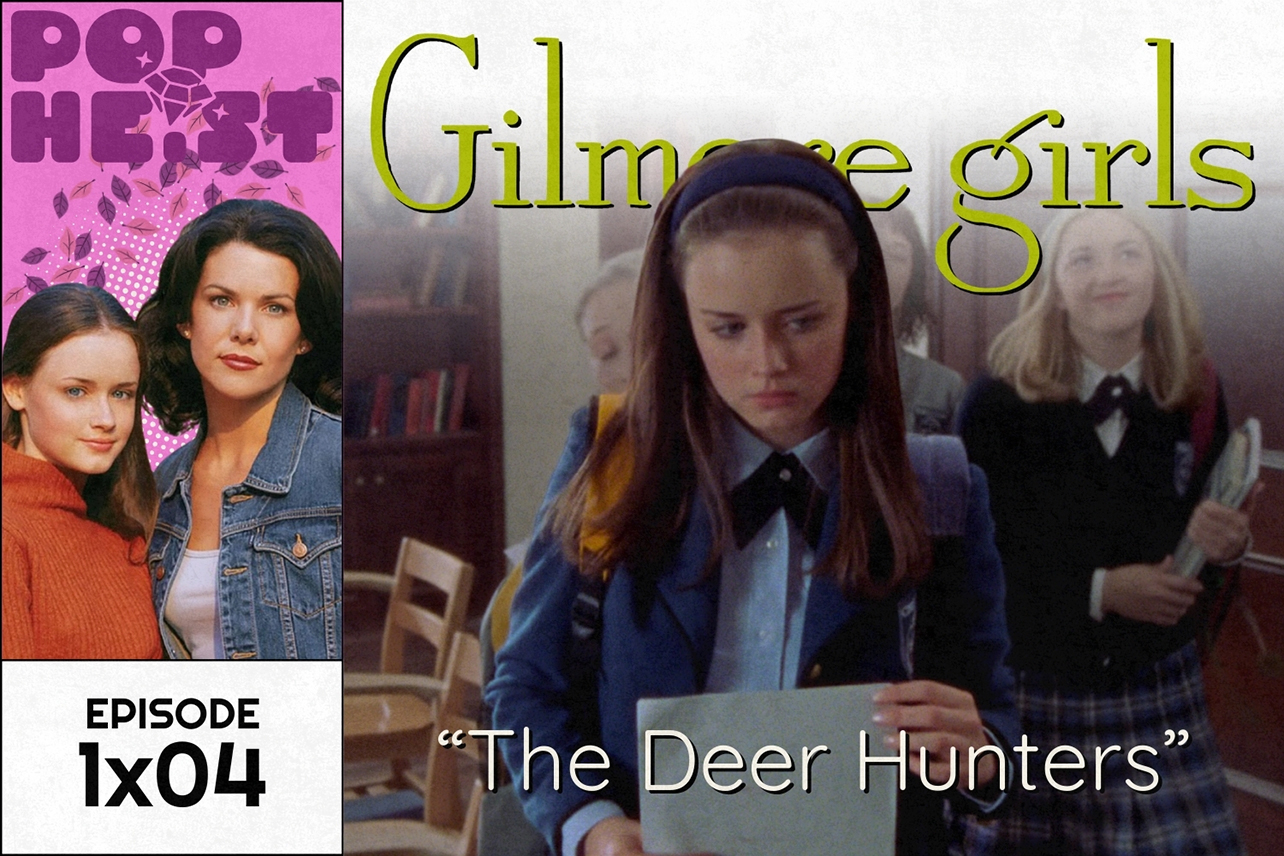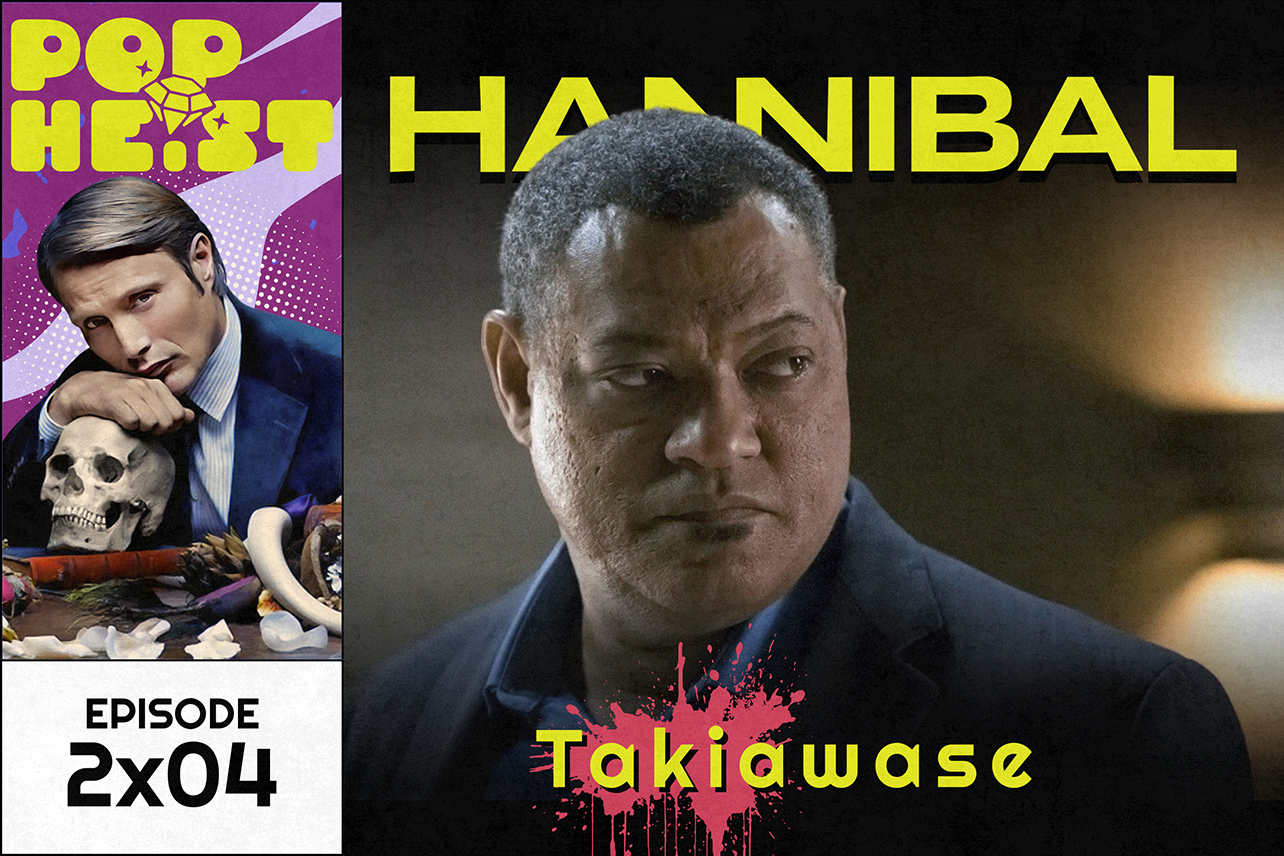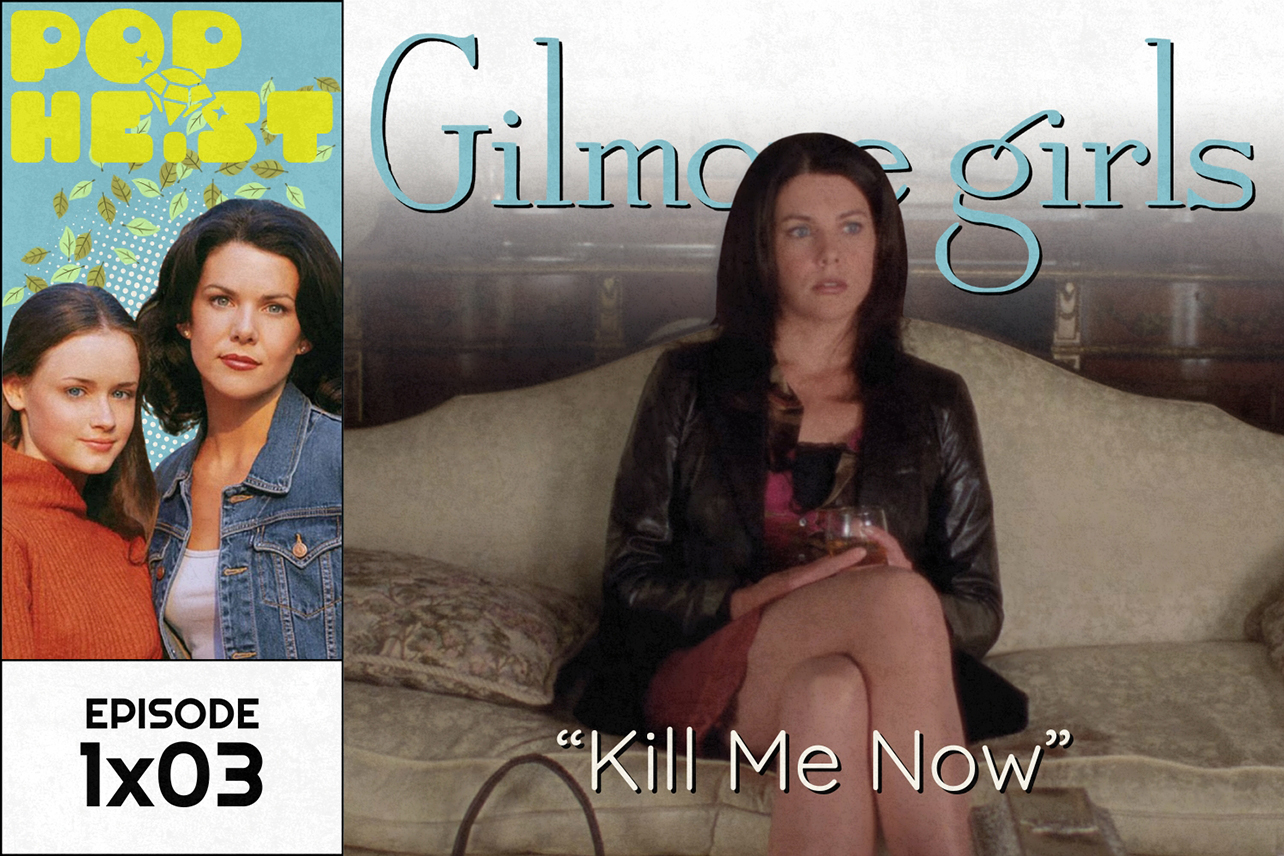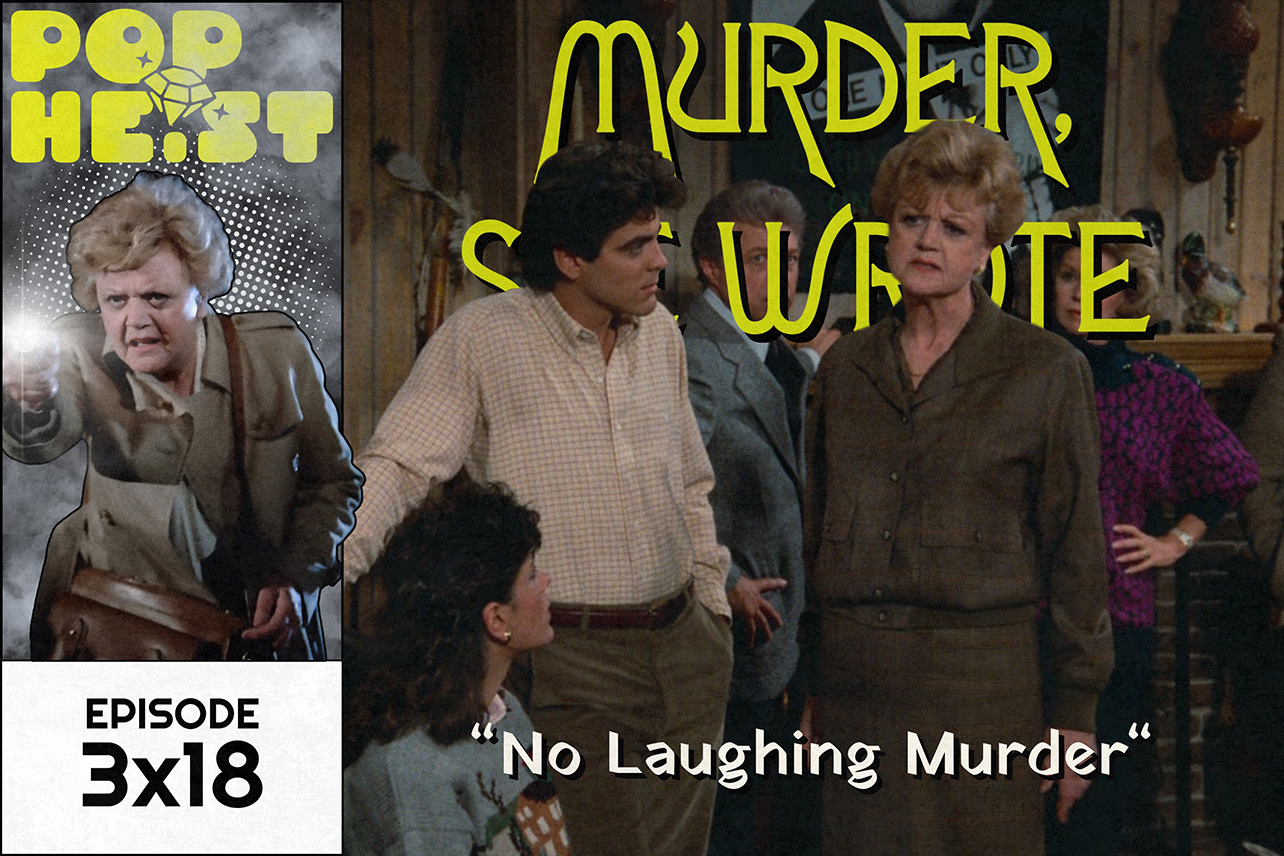Dark Season 1, Episode 8
"As You Sow, So You Shall Reap"
Original airdate: December 1, 2017
Writer: Martin Behnke, Jantje Friese
Director: Baran bo Odar
Cast: Hermann Beyer, Gwendolyn Göbel, Luise Heyer, Sebastian Hülk, Arnd Klawitter, Joshio Marlon, Oliver Masucci, Tom Philipp, Andreas Pietschmann, Rike Sindler, Christian Steyer, Anatole Taubman, Antje Traue, Lena Urzendowsky, Cordelia Wege
The trifecta. 33 years. Three dimensions.
Even on my umpteenth re-watch of the show, I'm impressed by the way Dark slowly unravels its design. What first seemed a story about missing children then appears to be a tale of cycles and a town rotted to the core. Every mundane life of a Winden resident is expressed as a complicated narrative of choices made long ago. It's in "As You Sow, So You Shall Reap" that we start to see the ways those choices impact the present but also the past.
It's the introduction of 1953 that re-frames everything. The endpoint for Mikkel, 1986, isn't an endpoint after all — it's the middle of the triquetra. It's an incredibly dark and awful episode of television, but one that, unfortunately, I do absolutely love.
As Ulrich follows Helge through the tunnels, desperate to prove that he's responsible for the loss of his son, we go even further back in time than we have before. Helge, a young boy, rides his bike and catches a glimpse of two bodies buried in the dirt at the build site of the eventual powerplant. Egon Tiedemann is confused by the boys. They are wearing unusual clothing from China, and one of them has an unusual ethnic background for 1950s Germany. But we know the truth. This is Erik and Yasin, somehow transported from 2019 to 66 years in the past, charred by whatever machine that used and killed them.
From there, the episode pivots to Helge's childhood. In earlier episodes, Helge has been a tragic figure, seen only thus far as an old man with dementia, muttering "tick-tock" and haunted by a past he cannot escape. Here we see the beginning of that story. Helge returns home to the Doppler mansion, which decades later will become the Waldhotel. His mother, Greta, greets him with scorn. She yanks him by the ear, berates his dirty clothes, and forces him to strip down to his underwear as punishment. The cruelty is ritualized, casual.
Bernd, his father and the man who passes the plant off to Claudia in a previous episode, enters and is gentler but no less troubling. He strokes Helge's head with affection, but only after Greta has humiliated him. Bernd is too busy with business to offer real love. When Helge mentions the dead children at the construction site, Bernd immediately leaves. Business trumps fatherhood. These brief glimpses sketch the roots of Helge's later fragility. The boy is caught between a cold, punitive mother and a father whose attention is limited. Left alone, Helge seeks refuge in the bunker, where he plays at war with pinecones and sticks. On the wall, two dates are written in chalk: 5.11.1953 and 9.11.1953.
Bernd Doppler holds a press conference at the construction site, touting the promise of nuclear energy. Behind him, police hammer "Crime Scene" signs into the ground. The symbolism is blunt but effective: Winden's prosperity is literally built on corpses.
Ulrich's arc in this episode is devastating. Emerging from the caves, he finds himself in 1953, though it takes him time to understand it. He stumbles through a town that looks familiar. He encounters young Helge, bullied by two older boys. They pin him down, rob him, and urinate on him. Ulrich chases them away, and he urges Helge to fight back next time. Bite them if he must. Ulrich also meets Agnes Nielsen and her son Tronte, his grandmother and father. It's here we get my favorite tradition of asking what year it is. When she says 1953, he staggers away. His family tree is staring back at him.
Agnes, mother to Tronte, settles into Winden, and Doris Tiedemann welcomes her. Tronte quietly reveals cigarette burns on his arm to Claudia. She seems enamoured with him (we know they'll have a fling in the future). The burns on his arm are a symbol of the abuse carried through generations. He bears not only the emotional scars of what happened to him, but physical ones as well. The scars link directly to his role in the present day. He becomes an absent father, repeating the same cycle of damage. What was inflicted on him as a child turns into the neglect he inflicts on Ulrich, which Ulrich then reproduces in his own failures as a husband and father. The pattern is as deterministic as the wormhole itself.
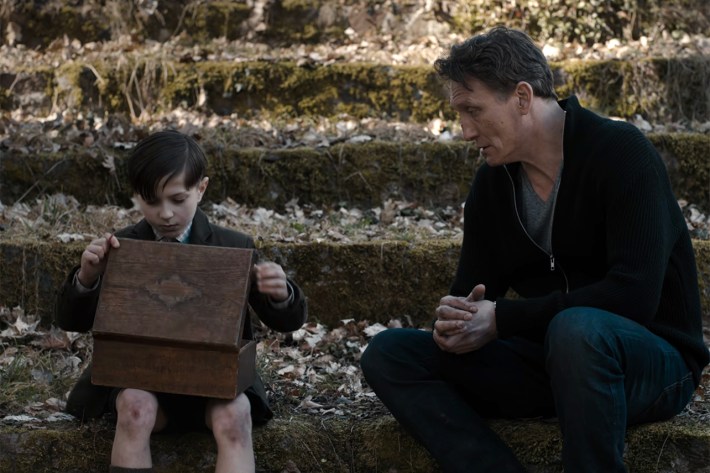
Ulrich's desperation peaks when he confronts Helge directly, believing he can end the future suffering by preventing it from ever happening. He tells the boy that one day he will kill: Ulrich's brother and his son. "If you don't exist, it won't happen," Ulrich insists. He beats Helge with a rock, drags him into the bunker, and leaves him there. But in trying to prevent the cycle, Ulrich becomes part of it. His violence is not a break but a link in the chain. He believes he is saving his family. In truth, he is sealing their fate.
Meanwhile, in 1986, we catch up on the conversations between The Stranger and H.G. Tannhaus. There are several times when the show drops philosophy and explanation. A lesser show's exposition would seem more heavy-handed, but not in Dark. They debate the Einstein-Rosen bridge, Nietzsche's eternal recurrence, and the significance of the number thirty-three. Tannhaus explains that a wormhole does not simply connect two points but three: past, present, and future. He holds up the triquetra symbol as an illustration.
The number thirty-three, Tannhaus reminds him, recurs in religion and literature: Jesus performed thirty-three miracles, Dante wrote thirty-three cantos and The Stranger adds that the Antichrist began his reign at thirty-three. It is both mystical and scientific, a pattern that encodes the structure of time itself. The Stranger pushes the conversation toward determinism. Can events be changed? Tannhaus insists science would say no. Everything is bound by cause and effect. But humans, he admits, cannot help but believe they have agency. It is this tension, between determinism and free will, that gives Dark its pulse.
The Stranger finally reveals his device. It is broken, but he insists it is a time machine built by Tannhaus himself. The old man denies it, but the initials engraved on the machine tell a different story. After The Stranger leaves, Tannhaus pulls out an identical machine. Suddenly, we have another paradox (the first being Mikkel being Michael).
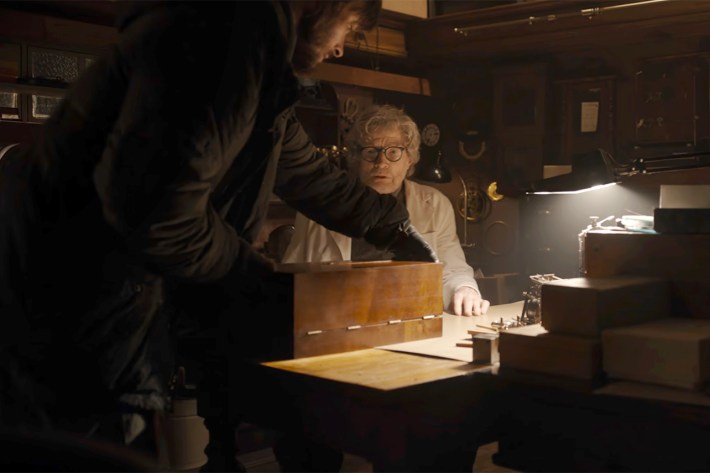
The final sequence crystallizes the episode's thesis. In the clockmaker's shop, young Tannhaus discovers a smartphone left behind by Ulrich. He presses a button, and the screen lights up with a photo of the Nielsen family from 2019. A relic of the future now sits in 1953. Another seed planted. Another paradox.
Ulrich, outside the bunker, stares into the dark. He believes he has changed history by killing Helge. We know better. His violence has already been folded into the cycle. What he has sown will be reaped. The episode reframes Dark yet again. By opening up 1953, the show reveals that what we thought were beginnings (Mikkel's disappearance, the wormhole in 1986) are themselves effects of older causes. The past doesn't just inform the present. It creates it.
The episode's structure makes the point clear. Each timeline echoes the others. Helge as a child, Helge as an old man, Helge as victim and perpetrator. Ulrich as savior and destroyer. The Stranger as destroyer of cycles and proof of their inevitability. The more the characters act, the more trapped they become. Episode 8 is the show at its bleakest and most exhilarating. By reaching back to 1953, it makes the labyrinth deeper, more suffocating, and more intricate. The harvest is inevitable. The cycle cannot be broken. And Winden's sickness runs deeper than anyone imagined.
This recap was originally accessible to paid subscribers only, and future recaps in this series are available now for paid subscribers. If you haven't already, consider supporting worker-owned media by subscribing to Pop Heist. We are ad-free and operating outside the algorithm, so all dollars go directly to paying the staff members and writers who make articles like this one possible.
